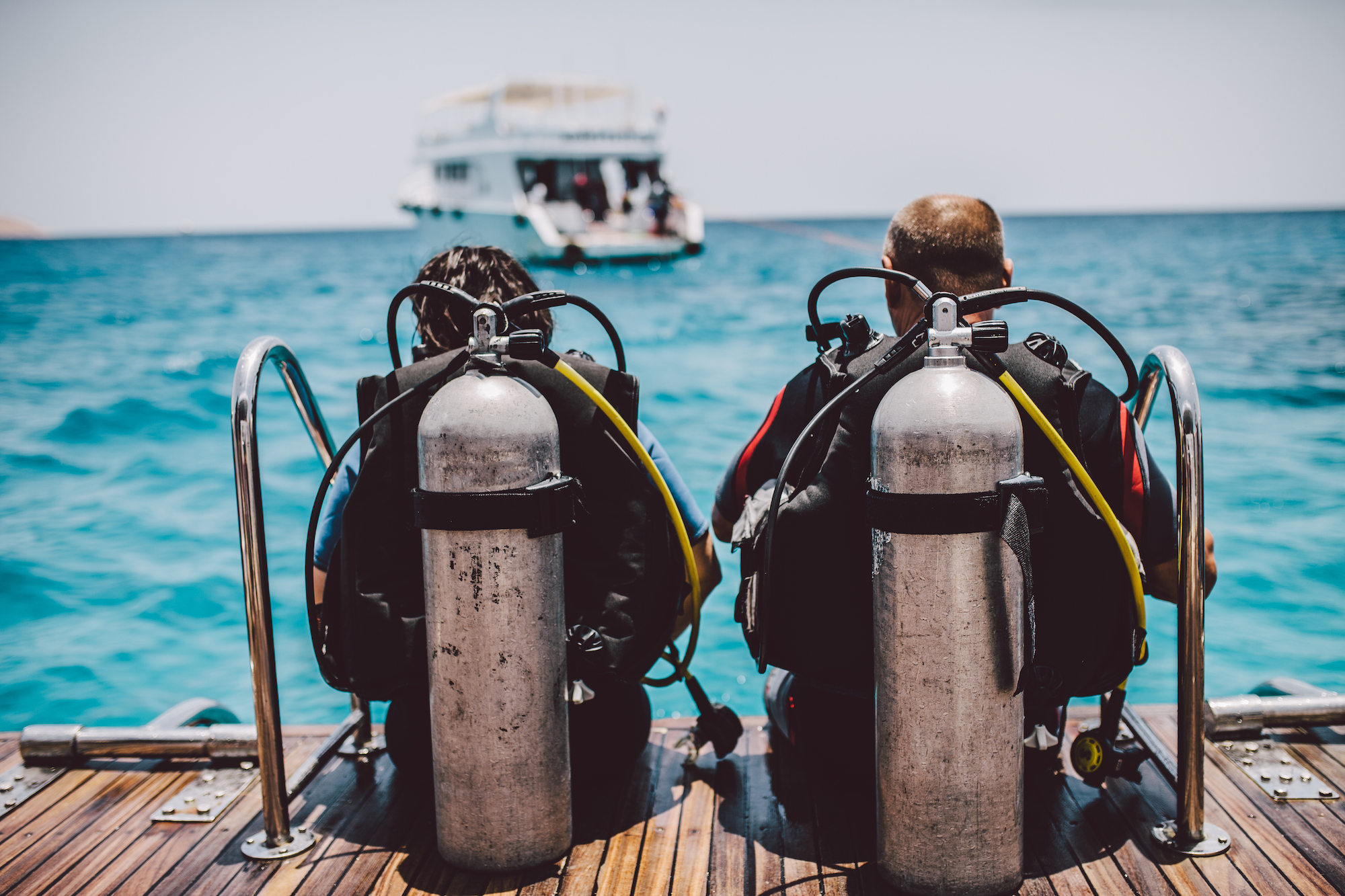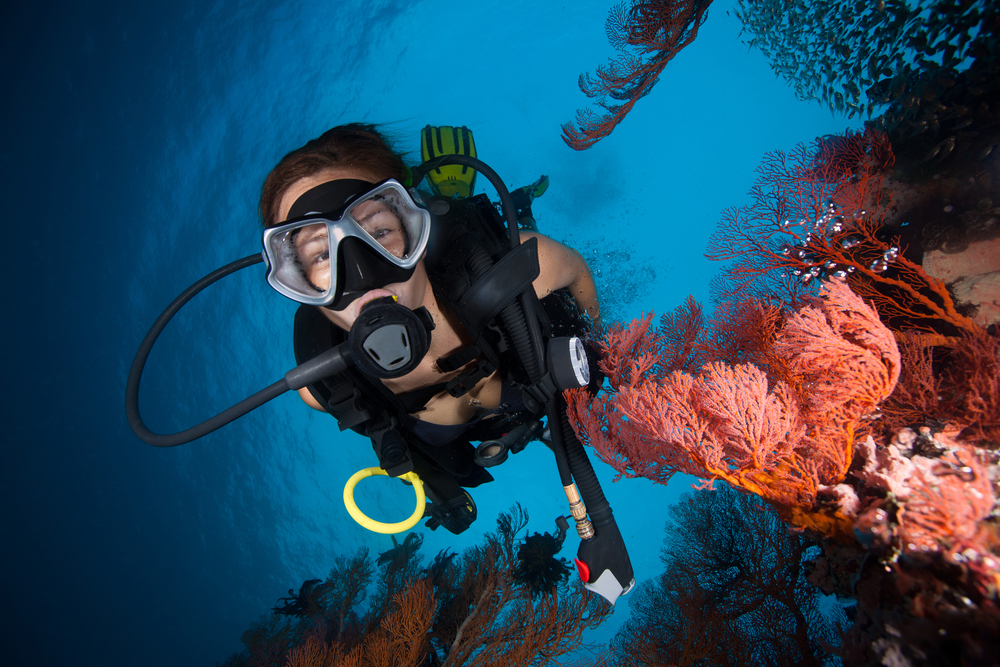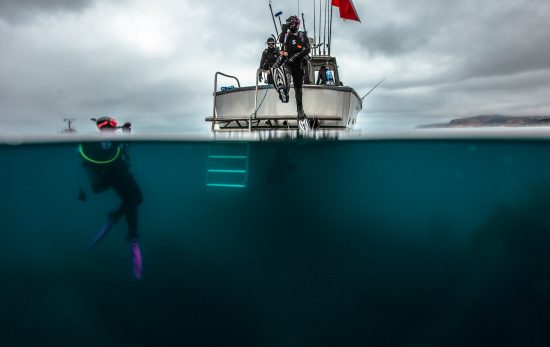One in four people will experience some form of a mental disorder during their lifetime, according to the World Health Organization. Mental health issues can take many forms, including anxiety, depression, attention deficit, and bipolar disorders. Most can be treated with non-pharmaceutical methods, while others require short- or long-term medication, like antidepressants.
Studies have shown scuba diving can be beneficial to people suffering from depression or other mental health issues, but sometimes that’s not enough. Divers Alert Network (DAN) frequently receives calls to its information line about scuba diving while taking antidepressants, so we asked them whether divers using medication to treat a mental health issue can safely dive.
Generally speaking, an individual with a previously-diagnosed, mild mental health issue who is in good health, capable of using good judgment, and not experiencing side effects from their medication can be approved to dive by their physician. Individuals who have lost the ability to make rational decisions (due to medication or other factors) should not dive.
The important thing is to have an honest conversation with a medical professional before diving. Even with a physician’s approval, you should never dive if you feel ill or dehydrated.

Mental Illness and Fitness to Dive
Fitness to dive means having the experience, skills, mental and physical capacity to stay safe underwater and assist others if needed. This includes managing emotions, such as fear and anxiety when faced with a problem — real or anticipated. Try diving with an open mind and know it’s 100% okay to say “no thanks.” Some divers push their limits because they want approval from a spouse or friend, but a panic-stricken diver is hazardous to themselves and others.
A Discover Scuba Diving Experience is an easy way to find out if diving is for you. Tell your instructor about your concerns, so they can ensure you have time and space to get comfortable.
If your first scuba experience goes well, great! Consider enrolling in a private Open Water Diver course. During a private class, you can relax and take your time without worrying about what other students think. Contact your local PADI Dive Center or Resort for pricing and schedule options.
Scuba Diving While Taking Antidepressants
Diving while taking antidepressants or related medications is relatively uncharted territory; however, divers who have taken the same medication over a long period (preferably 3 months or more) without issue may receive permission from their doctor to enjoy recreational diving.
What’s the concern? The side effects of certain medications may mimic symptoms of decompression illness (DCI) or cause life-threatening problems, such as seizure, dizziness, fatigue, headache, numbness, altered mental status, tingling in the extremities and vision problems. For this reason, divers who have recently started a new medication should wait until they’re familiar with a drug’s side effects before getting in the water.
SSRIs (Selective Serotonin Reuptake Inhibitors)
SSRIs are believed to be relatively safe for divers. There is, however, evidence that higher doses of SSRIs can cause seizures, which increase the probability of drowning should one occur during a dive. Also, anyone who experiences drowsiness as a side effect of using SSRIs, or any other medication, should not dive.
Divers taking central nervous system (CNS) medications have reported problems while diving, including anxiety and, on occasion, panic. This is thought to be caused by the interaction of high partial pressures of nitrogen and the side effects of the drugs. Discuss the possibility of seizures with your doctor.
Scuba Diving and ADHD, Antipsychotic and Antiseizure Medications
No data exists regarding scuba diving while taking antipsychotic drugs or stimulant medications. The greatest hazard may be a diver who does not take their medication as prescribed.
Anyone taking lithium carbonate antiseizure medications for anxiety should not dive. There is a potential for lithium toxicity should the individual become sodium-depleted or dehydrated.

Commonly Prescribed Medications for Mental Illness
Below is a list of commonly-prescribed medications for mental illness by type.
- Use your browser’s find feature, Ctrl+F, or Command+F on Apple devices, to quickly locate a specific medication by name. The generic name is listed first followed by various brand names.
- Click the link at the top of each list to review additional information about diving while taking a particular class of drugs
Benzodiazepines
Alprazolam / Xanax
Chlordiazepoxide / Librium
Clonazepam / Klonopin
Clorazepate / Tranxene
Diazepam / Valium
Halazepam / Paxipam
Lorazepam / Ativan
Oxazepam / Serax
Prazepam / Centrax
Beta Blockers
Acebutolol / Sectral
Atenolol / Tenormin
Betazolol / Kerlone
Bisoprolol / Ziac or Zebeta
Carteolol / Cartrol
Carvedilol / Coreg, Labetalol / Normodyne or Trandate
Metoprolol / Lopressor
Nadolol / Corgard or Corzide, Penbutolol / Levatol
Pindolol / Visken
Propanolol / Inderol
Timolol / Blocadren or Timolide
Monoamine-Oxidase Inhibitors (MAOIs)
Phenelzine / Nardil and Tranylcypromine / Parnate
Methylphenidate / Ritalin
Mirtazapine / Remeron
Venlafaxine / Effexor
S-Adenosyl-L-Methionine (SAMe)
Sertraline / Zoloft
St. John’s Wort
Tricylic Antidepressants
Tofranil, Elavil, Endep, Norpramine, Pertofrane, Pamelor, Aventyl, Surmontil, Vivactil, Adapin, Sinequan, Anafranil
Additional depression, anxiety and obsessive-compulsive disorder medications
Celexa / Citalopram
Fluoxetine / Prozac
Fluvoxamine / Luvox
Additional medications for anxiety, bipolar disorders, depression and/or seizures
Buprenorphine / Buprenex
Buproprion / Wellbutrin or Zyban
Buspirone / Buspar
Carbamazepine / Tegretol
Lamotrigine/Lamictal
Lithium / Lithonate, Eskalith, Lithobid or Lithane
Nefazodone / Serzone
Paroxetine / Paxil
Topiramate / Topamax
Trazodone / Desyrel
Valproic Acid / Depakote
Schizophrenia
Clozapine / Clozaril
Haloperidol / Haldol
Naltrexone / Revia
Olanzapine / Zyprexa
Quetiapine / Seroquel
Risperidone / Risperdal
Talk to Your Doctor
The information above is just a starting place. If you’re thinking about getting certified, or recently started a new medication, consult your physician. If they have any questions, DAN has a non-emergency medical information line staffed by medical professionals: +1-919-684-2948. The line is available Monday through Friday from 8:30 am – 5:00 pm EST. Never stop taking any required medication in order to go diving without strict approval from your prescribing physician.


